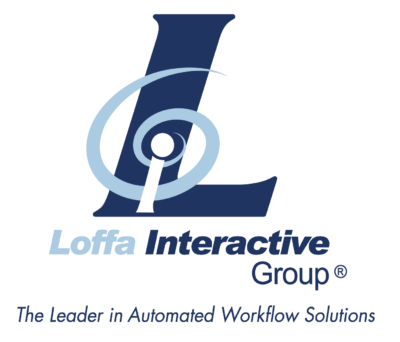The Great Resignation & T+1: Preserving Workflow Integrity in Financial Brokerages
8 min read
From Experience to Adaptation: Ensuring Compliance in the Wake of Industry Upheaval
 The unprecedented phenomenon of the Great Resignation, coupled with the shift towards a T+1 settlement cycle, has unveiled new challenges within the financial sector, particularly among brokerage firms. This sweeping movement has seen a significant exodus of seasoned professionals across industries, leaving a void that has been particularly felt in the operations teams of brokerage firms. The departure of these experienced employees, who possessed an intimate understanding of the intricate processes and the regulatory environment that shaped them, raises concerns about the future of workflow compliance and efficiency in these critical financial institutions. This blog post explores the impact of these industry-wide changes, drawing on historical examples and regulatory penalties to underscore the importance of preserving institutional knowledge and ensuring compliance in an era of transition.
The unprecedented phenomenon of the Great Resignation, coupled with the shift towards a T+1 settlement cycle, has unveiled new challenges within the financial sector, particularly among brokerage firms. This sweeping movement has seen a significant exodus of seasoned professionals across industries, leaving a void that has been particularly felt in the operations teams of brokerage firms. The departure of these experienced employees, who possessed an intimate understanding of the intricate processes and the regulatory environment that shaped them, raises concerns about the future of workflow compliance and efficiency in these critical financial institutions. This blog post explores the impact of these industry-wide changes, drawing on historical examples and regulatory penalties to underscore the importance of preserving institutional knowledge and ensuring compliance in an era of transition.
Historically, the financial services industry has been built on a foundation of rigorous regulatory compliance, with workflows meticulously designed to align with a complex web of SEC regulations and other financial laws. Seasoned professionals, through years of experience, have not only mastered these regulations but have also understood the rationale behind each process step, ensuring that their firms remain on the right side of compliance and efficiency.
The Impact of the Great Resignation
The Great Resignation has prompted a significant shift in the workforce demographics within brokerage firms. With the departure of many experienced professionals, there’s been a noticeable loss in institutional memory and an understanding of the regulatory landscapes that dictate operational workflows. This brain drain poses a critical challenge: the potential dilution of regulatory awareness and adherence, risking non-compliance and operational inefficiencies that could have far-reaching consequences for these firms.
The Risk of Knowledge Gaps
In the wake of workforce changes and the rapid shift to a T+1 settlement cycle, there’s a tangible risk that new or less experienced employees may overlook critical aspects of the established workflows. Without the guidance of seasoned mentors, there’s a potential for misunderstanding the necessity of certain processes, leading to the inadvertent simplification or elimination of steps that are critical for regulatory compliance and operational integrity.
The Consequences of Non-Compliance
 Historically, financial firms have faced significant penalties for non-compliance with regulatory standards. For instance, in 2015, a major brokerage firm was fined $7.5 million for failing to comply with SEC Rule 15c3-5, which mandates risk controls in automated trading environments. Such penalties highlight the severe implications of failing to adhere to regulatory requirements, emphasizing the importance of comprehensive understanding and compliance.
Historically, financial firms have faced significant penalties for non-compliance with regulatory standards. For instance, in 2015, a major brokerage firm was fined $7.5 million for failing to comply with SEC Rule 15c3-5, which mandates risk controls in automated trading environments. Such penalties highlight the severe implications of failing to adhere to regulatory requirements, emphasizing the importance of comprehensive understanding and compliance.
To preserve compliance in an era of change and mitigate the risks associated with the Great Resignation and the transition to a T+1 settlement cycle, brokerage firms must prioritize knowledge transfer and regulatory training. This involves:
- Developing robust mentorship programs to bridge the knowledge gap between seasoned professionals and newer employees.
- Investing in comprehensive training programs focused on regulatory compliance and the rationale behind workflow processes.
- Leveraging technology to document and disseminate institutional knowledge, ensuring that workflow justifications are accessible to all employees.
- Engaging in continuous dialogue with regulatory bodies to stay abreast of changes and interpretations of compliance requirements.
The transition to T+1 (Trade plus one day) settlement cycle, scheduled amid the lingering effects of the Great Resignation, presents a double-edged sword for financial institutions, especially brokerage firms. This shift from T+2 to T+1, aimed at increasing market efficiency and reducing credit and operational risks, is indeed a significant leap towards modernizing financial markets. However, its timing poses unique challenges, particularly in the backdrop of the unprecedented workforce turnover witnessed during the Great Resignation.
The Great Resignation’s Impact on Financial Institutions
 The Great Resignation has seen a considerable exodus of seasoned professionals across industries, including critical operations teams within brokerage firms. This wave of departures has left a knowledge gap, as experienced employees who understood the intricacies and rationale behind established workflows have left. Many of these workflows are deeply rooted in regulatory compliance and risk management practices that have evolved over decades.
The Great Resignation has seen a considerable exodus of seasoned professionals across industries, including critical operations teams within brokerage firms. This wave of departures has left a knowledge gap, as experienced employees who understood the intricacies and rationale behind established workflows have left. Many of these workflows are deeply rooted in regulatory compliance and risk management practices that have evolved over decades.
With the departure of experienced staff and the influx of newer, less experienced personnel, there’s a tangible risk that the nuanced understanding of these processes could diminish. Newer employees might view existing workflows as outdated or unnecessary, lacking the historical context that shaped these practices. This situation is exacerbated by the potential lack of adequate knowledge transfer during the Great Resignation period, further risking compliance and operational integrity.
The move to T+1 settlement further complicates this scenario. This transition requires significant adjustments to operational workflows, tighter processing windows, and, most importantly, a deep understanding of the regulatory landscape to navigate these changes successfully. The shortened settlement cycle leaves less room for error, demanding faster decision-making and action—all within a regulatory framework that newer employees might not fully comprehend.
At Loffa, we predict that these factors combined—workforce turnover, the learning curve for new operational practices under T+1, and the existing pressure to adapt to a faster settlement cycle—could lead to an increase in compliance violations over the next 12 to 24 months. The coinciding of T+1’s implementation with the aftermath of the Great Resignation creates a perfect storm, where the risk of overlooking crucial compliance details or misinterpreting regulatory requirements is heightened.
Historical Precedents and the Importance of Compliance Vigilance
 History has shown that significant shifts in market practices, especially when compounded by internal changes within firms, can lead to increased scrutiny and regulatory penalties. Examples abound of financial institutions facing hefty fines for compliance lapses during periods of operational transition or regulatory change. These precedents underscore the need for firms to prioritize compliance vigilance, especially now, as the industry navigates the dual challenges of T+1 implementation and the aftermath of the Great Resignation.
History has shown that significant shifts in market practices, especially when compounded by internal changes within firms, can lead to increased scrutiny and regulatory penalties. Examples abound of financial institutions facing hefty fines for compliance lapses during periods of operational transition or regulatory change. These precedents underscore the need for firms to prioritize compliance vigilance, especially now, as the industry navigates the dual challenges of T+1 implementation and the aftermath of the Great Resignation.
In response, financial institutions, particularly brokerage firms, must invest in comprehensive training programs focused on both the operational aspects of T+1 and the underlying regulatory framework. Equally important is fostering a culture of compliance and risk awareness among all employees, especially those newly onboarded. Enhanced compliance training, mentorship programs, and the strategic use of technology can play pivotal roles in bridging knowledge gaps and ensuring that the legacy of compliance and operational excellence is maintained even as the market evolves.
The convergence of T+1’s implementation with the workforce changes brought about by the Great Resignation presents a unique set of challenges for the financial industry. Loffa’s prediction of an uptick in compliance violations underscores the critical need for firms to proactively address these challenges. By understanding the implications of these concurrent developments, brokerage firms can take strategic steps to mitigate risks, ensuring they remain compliant and resilient in the face of change.
Tackling the Compliance Challenge Post-Great Resignation: Loffa’s Commitment to the Financial Industry
 At Loffa, the preservation and transfer of compliance knowledge, particularly within settlement operations, is not just a commitment—it’s a cornerstone of our service to the financial industry. With the seismic shifts in the workforce dynamics and the upcoming implementation of T+1, our role in ensuring operational compliance and efficiency has never been more vital. Our deep-rooted expertise in Prime Broker processes, from F1SA to SIA-150 and SIA-151s, along with our proficiency in managing quarterly broker statements and navigating the complex web of transactions from executing to custodian to prime broker sides, stands as a testament to our dedication to upholding the highest standards of compliance and operational excellence.
At Loffa, the preservation and transfer of compliance knowledge, particularly within settlement operations, is not just a commitment—it’s a cornerstone of our service to the financial industry. With the seismic shifts in the workforce dynamics and the upcoming implementation of T+1, our role in ensuring operational compliance and efficiency has never been more vital. Our deep-rooted expertise in Prime Broker processes, from F1SA to SIA-150 and SIA-151s, along with our proficiency in managing quarterly broker statements and navigating the complex web of transactions from executing to custodian to prime broker sides, stands as a testament to our dedication to upholding the highest standards of compliance and operational excellence.
Over the years, Loffa has not only adapted to the evolving landscape of financial regulations but has also been instrumental in guiding our clients through these changes. Our approach to knowledge transfer is built on a foundation of continuous learning and sharing, ensuring that the wisdom accumulated from decades of experience is passed down and made accessible to all levels of our client organizations. This commitment to education and empowerment has enabled our clients to navigate the intricacies of regulatory compliance with confidence, even amidst periods of significant industry transformation.
The introduction of T+1 brings about a new set of challenges and opportunities for the financial industry. Loffa’s extensive knowledge of Prime Broker processes and the regulatory environment positions us as an invaluable partner to our clients during this transition. Our comprehensive training programs, tailored consultancy services, and cutting-edge technological solutions are designed to bridge any knowledge gaps that may arise from workforce changes, ensuring that the legacy of compliance and operational integrity is maintained.
Furthermore, Loffa’s proactive approach to compliance vigilance—leveraging our expertise to anticipate potential regulatory pitfalls and advising our clients accordingly—ensures that they are not only prepared for the present but are also strategically positioned for the future. Our understanding of the rules surrounding the verification of funds and the intricate dance of transactions that define the Prime Brokerage space is more than just a service offering; it’s a wealth of knowledge that enriches the entire financial industry.
As the financial sector stands at the cusp of the T+1 transition, amidst the lingering impacts of the Great Resignation, Loffa’s unwavering commitment to preserving and sharing compliance knowledge serves as a beacon of stability and assurance. Our legacy of expertise in Prime Broker processes and the broader regulatory framework ensures that our clients are not merely navigating changes but are thriving through them. In an era where compliance and operational efficiency are paramount, Loffa remains a trusted partner, dedicated to safeguarding the integrity of the financial markets and supporting our clients through every challenge and opportunity that lies ahead.
Conclusion
The Great Resignation and the shift to a T+1 settlement cycle represent significant challenges for brokerage firms, especially in maintaining regulatory compliance and operational efficiency. As the industry navigates these changes, the preservation of institutional knowledge and a deep understanding of regulatory landscapes become paramount. Through strategic knowledge transfer, robust training, and leveraging technology, firms can ensure that the legacy of compliance and efficiency is upheld by the new generation of financial professionals, safeguarding the industry’s integrity in the face of change.